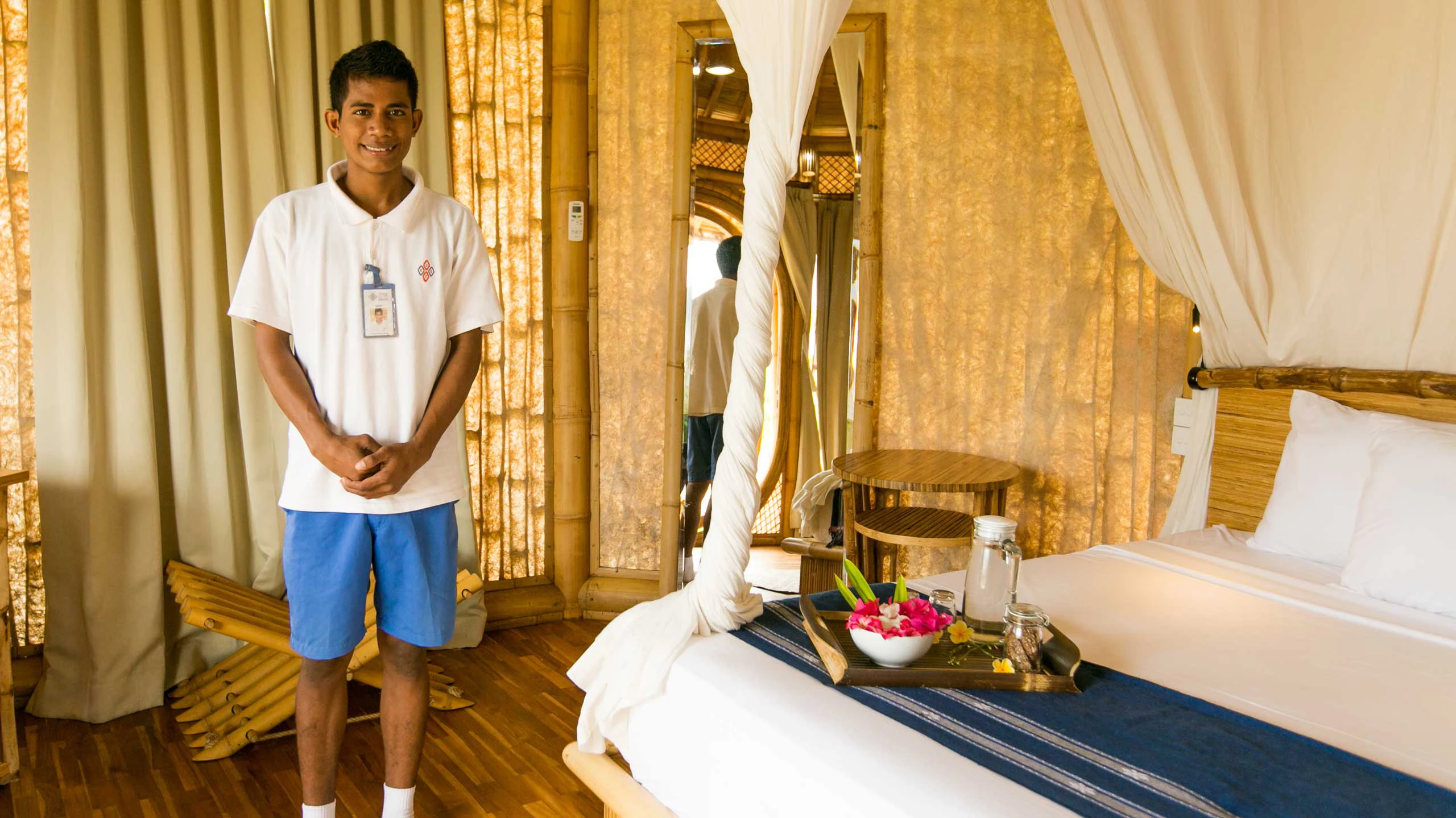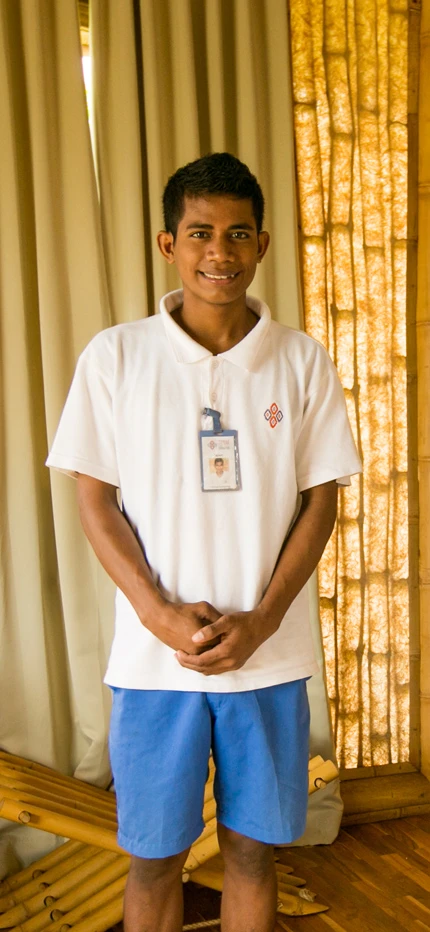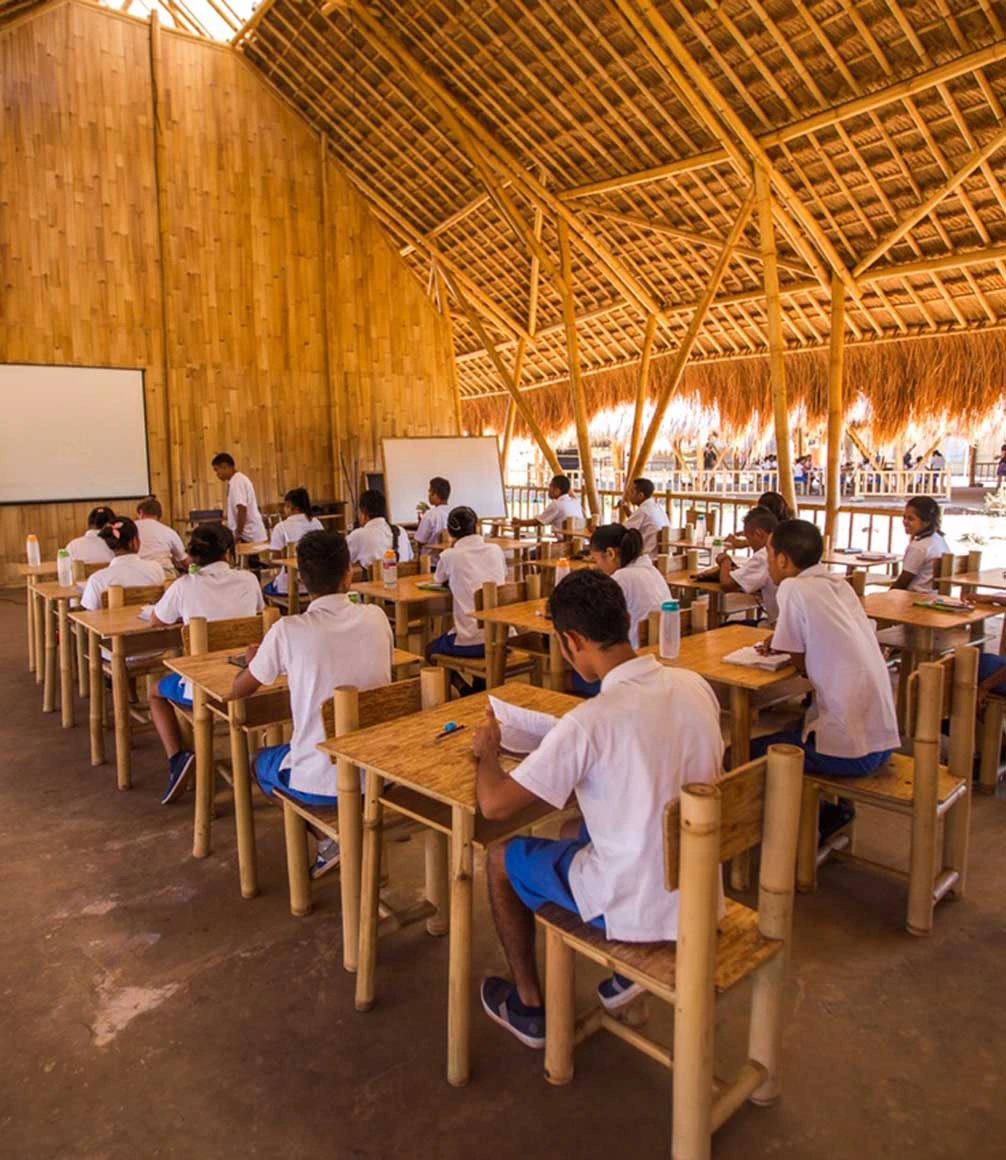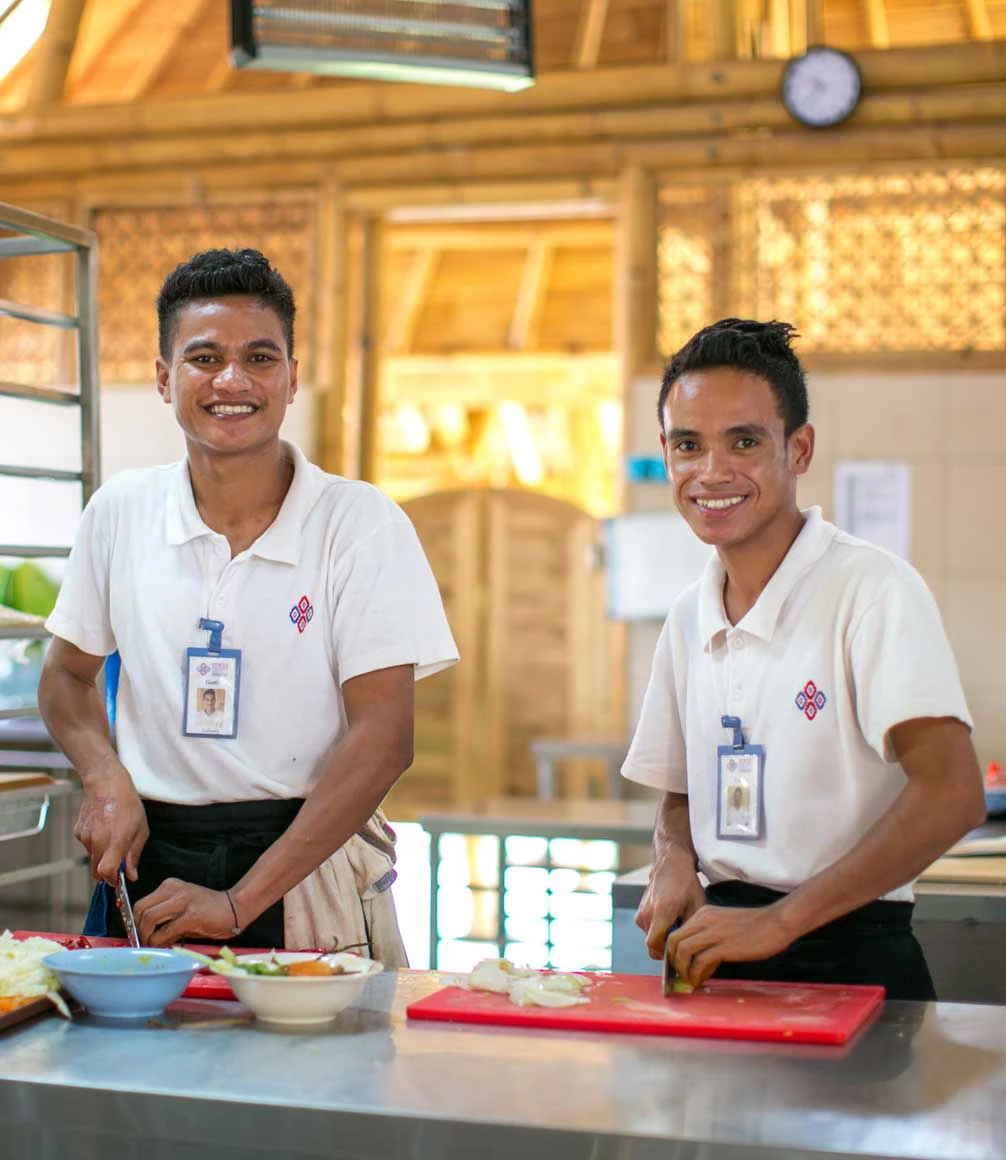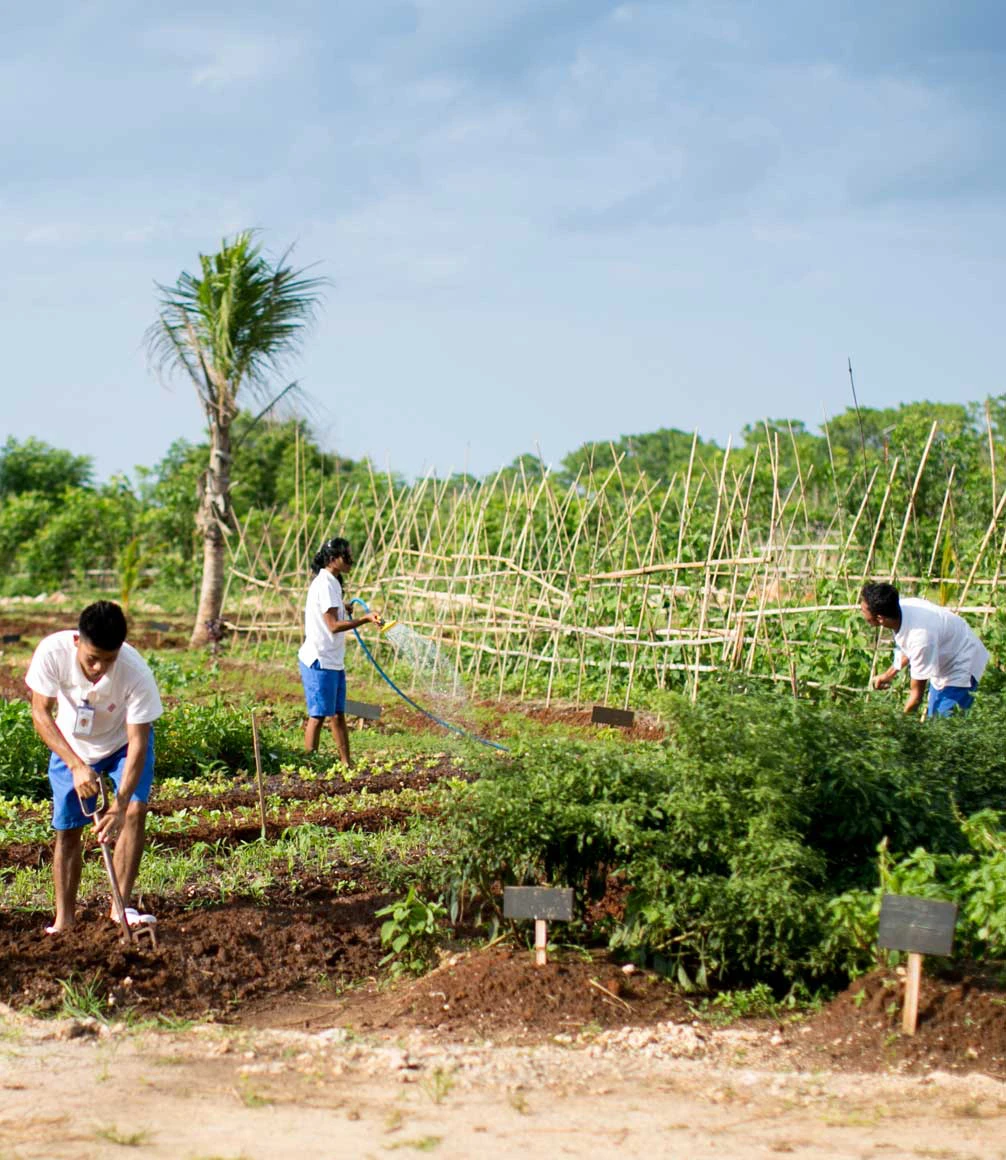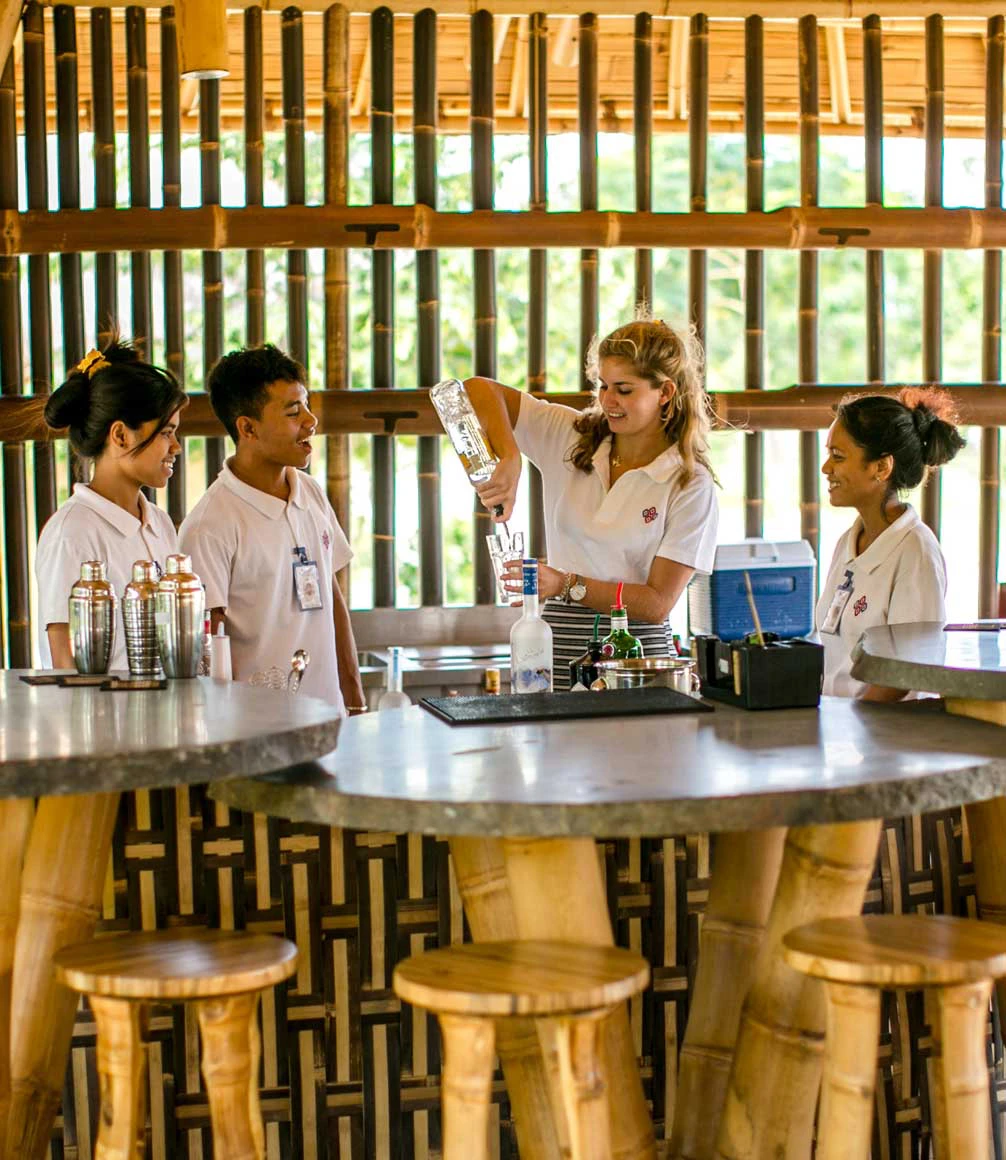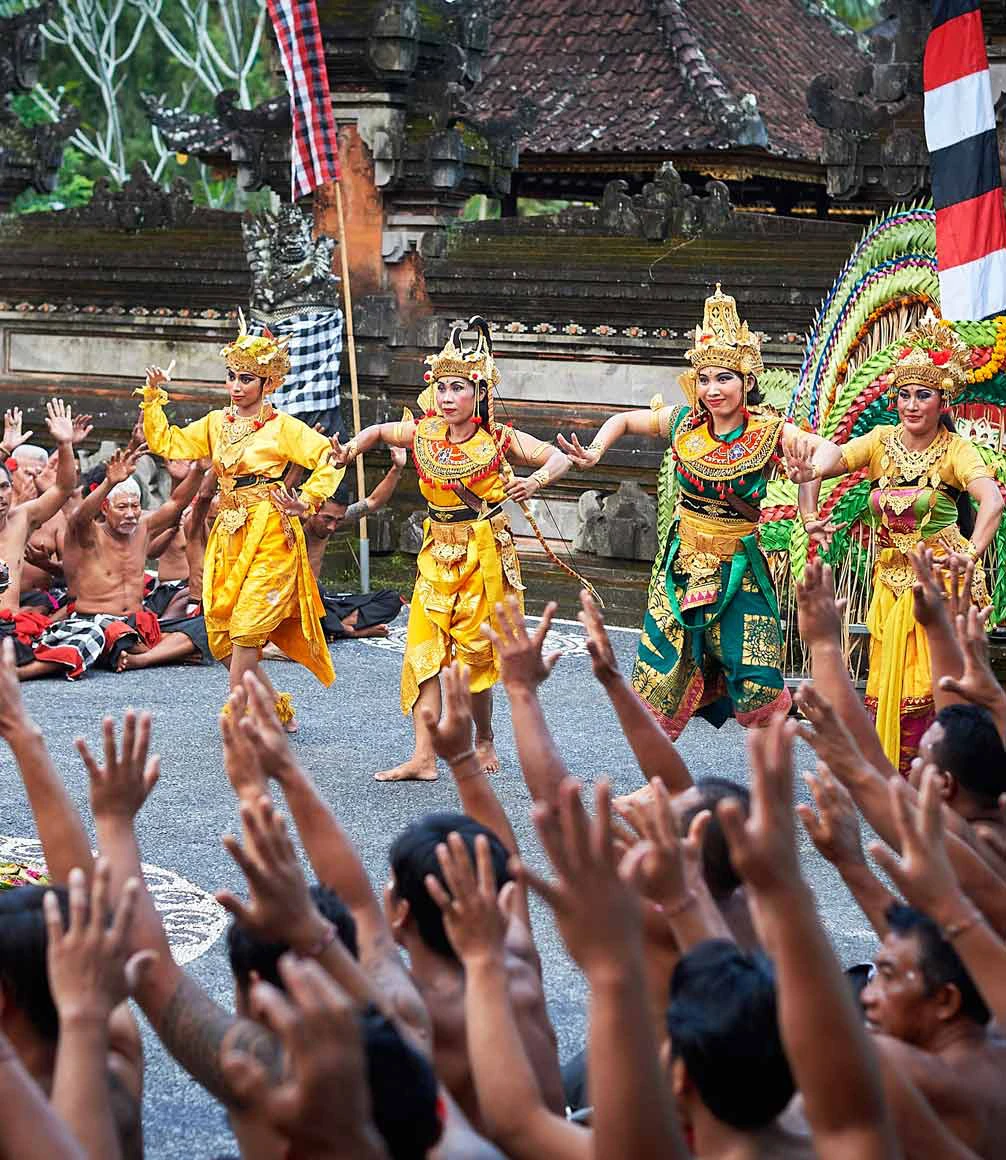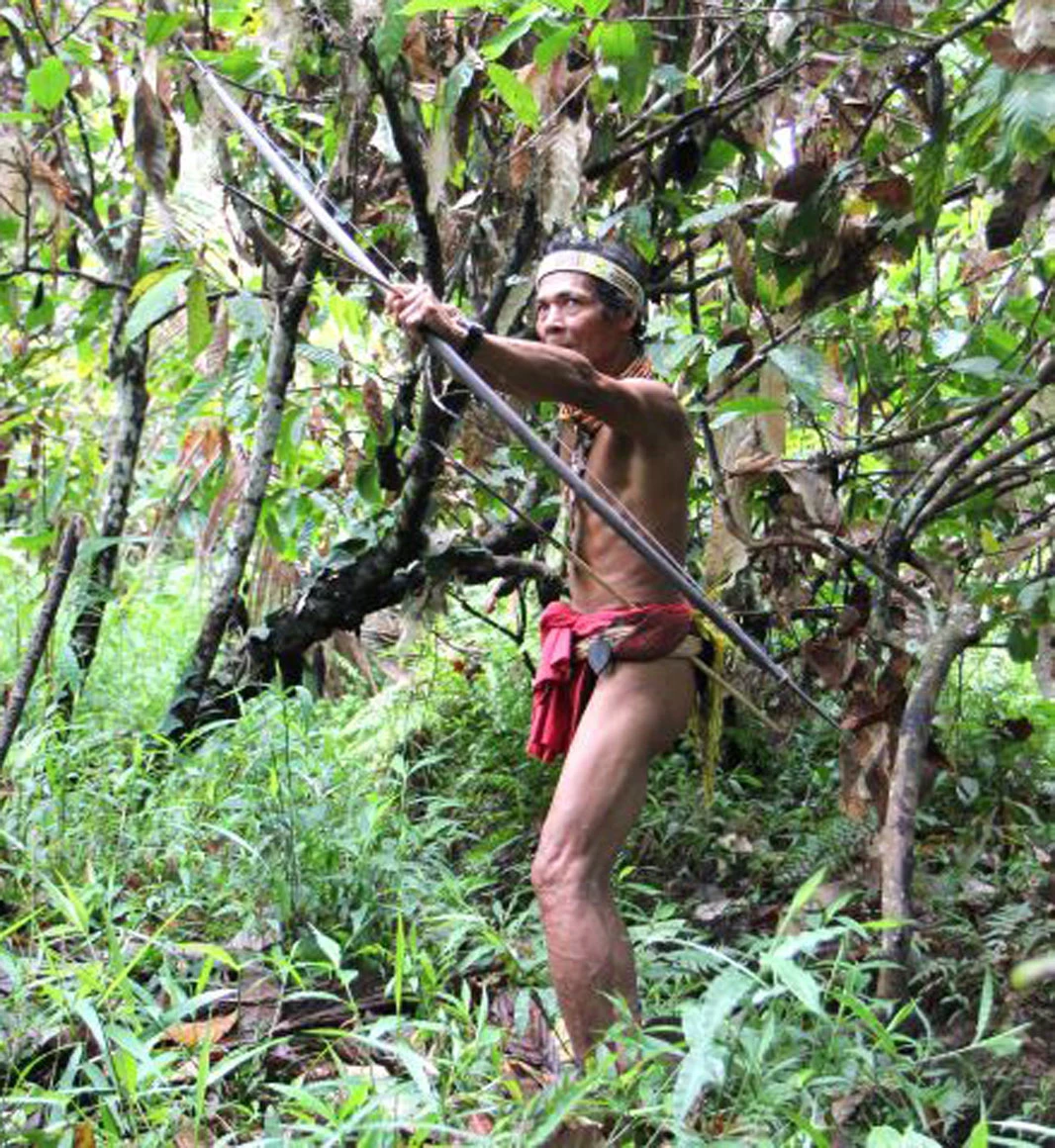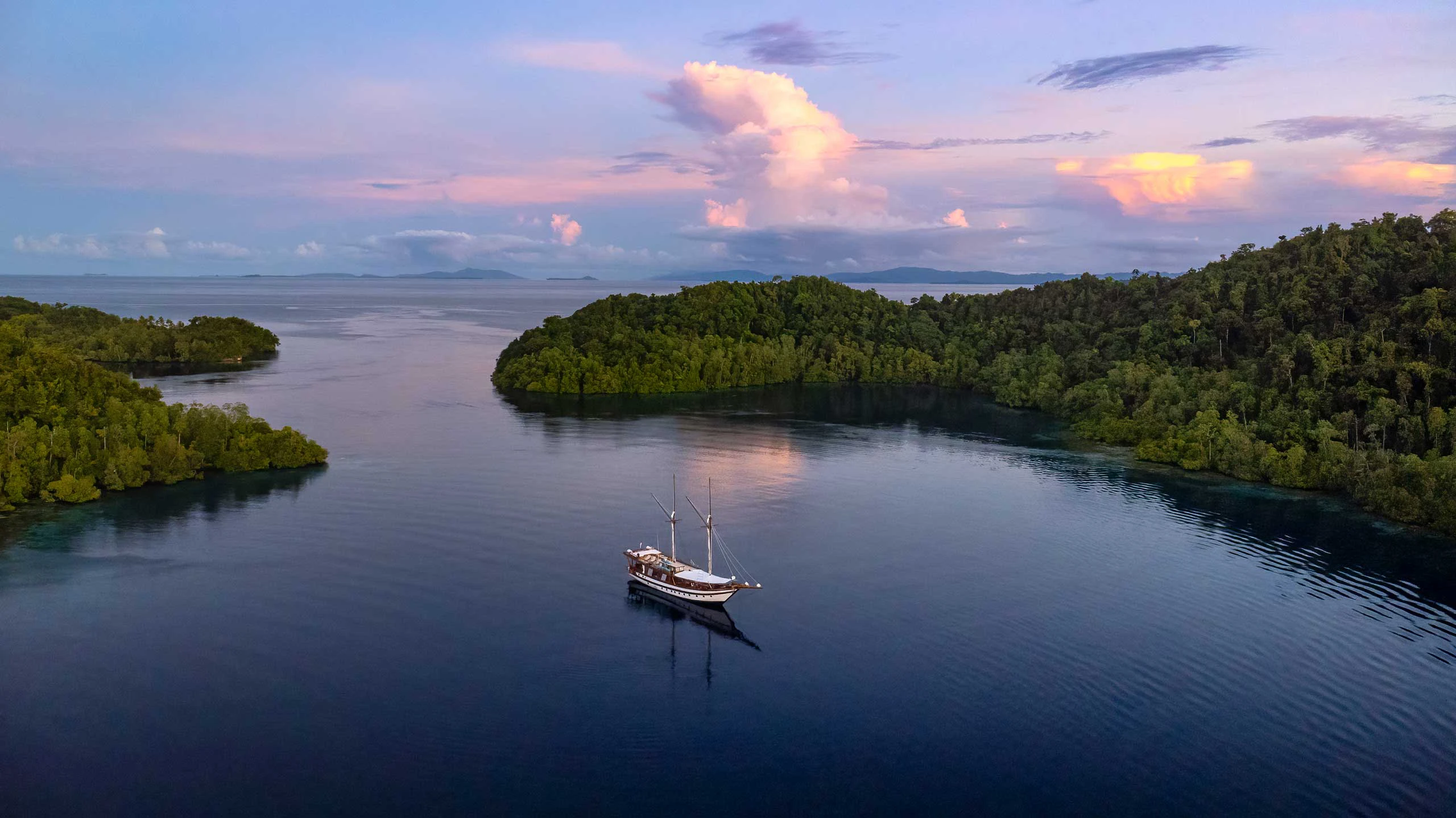The remote island of Sumba is one of the poorest islands in the Indonesian Archipelago, yet culturally it is one of the richest, with strong ancient traditions. Approximately 800,000 inhabitants cover an area of over 11,000 square kilometres. In comparison with other islands in the Indonesian Archipelago, Sumba has historically lacked adequate support in terms of education and the resources required for economic growth.
Following a visit to the island in 2013 and saddened by Sumba’s challenges, Inge de Lathauwer established the Sumba Hospitality Foundation to provide vocational hospitality training for underprivileged young people aged 17 to 23 years. The program educates and empowers fragile communities as part of a mission to end the circle of poverty. Through the hotel school, Inge and her team help prepare the island for responsible tourism development: creating job opportunities for local communities while preserving identity and environment.
"These social projects are investments in Sumba and its youth, contributing to sustainable long-term tourism.”
The school’s curriculum focuses not only on hospitality training but also on sustainable tourism, environmental awareness, permaculture farming and personal development. Students gain work experience in the nine-bedroom Maringi Eco Resort and its fine dining restaurant, located on campus ground. Environmental awareness is interwoven in every detail of the project: the resort is powered by solar energy, has a 2.5-hectare permaculture farm, a water-saving system and a zero-plastic policy. The durable, bamboo architectural design of the site combines Sumbanese features with modern touches. As such, the campus serves as a model of responsible tourism for the island and gives guests the opportunity to contribute. Every penny spent at Maringi goes to the Foundation.
Students are given the opportunity to finish their one-year program with an internship at a five-star hotel or a restaurant in Bali. In addition to the educational program and internship, acceptance to the school includes full boarding, meals and healthcare. Since the opening of the school in 2016, 148 Sumbanese have participated in the program and are now able to support their respective families.
In addition, the Foundation extends its reach to the wider community by providing English classes and by facilitating a coalition that advocates for the island’s responsible tourism. The community English classes are organised every weekday and are taught by volunteers and existing school students.
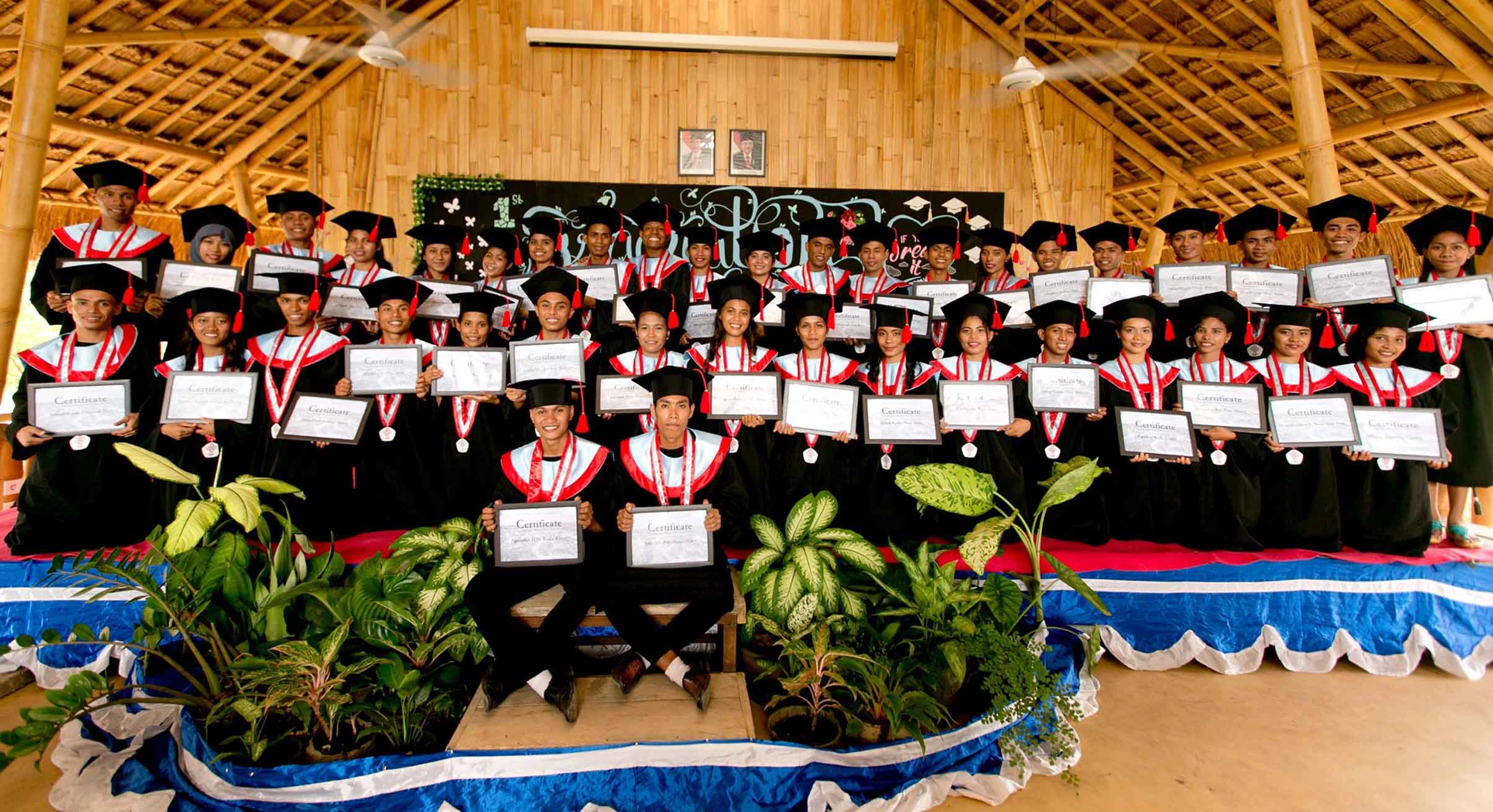
How can you engage with Sumba Hospitality Foundation?
Participate in a Q&A session with students about a topic that you are passionate about and that can inspire the students. Support activities on the permaculture farm. Assist with English classes provided to the wider Sumba community. Participate in a farm-to-table workshop including a cooking class with ingredients collected on the permaculture farm. Help create jewellery from locally- sourced materials. Participate in the extracurricular activities of the students, such as yoga.
Ready to take the road less travelled?
